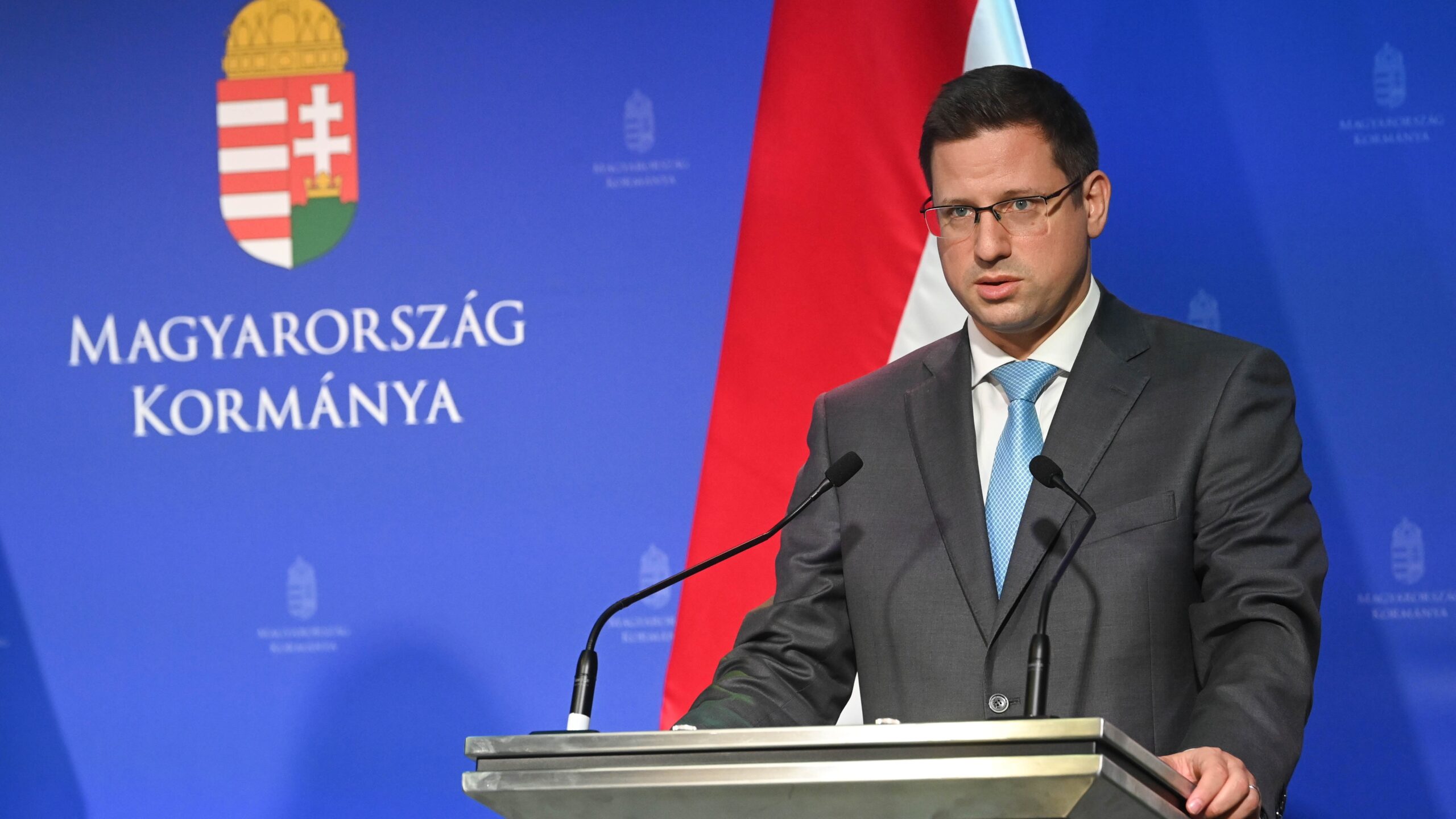The Hungarian government has reaffirmed its commitment to improving the living standards of pensioners and rural communities through a series of new measures announced during a recent cabinet meeting. Chief of the Prime Minister’s Office Gergely Gulyás outlined the key initiatives at a press briefing, emphasizing the government’s focus on increasing the purchasing power of pensions and supporting home renovations in smaller towns.
One of the most significant announcements was the continuation of the 13th-month pension, a policy introduced in 2010 to supplement retirees’ incomes. This year, the payment will be disbursed on 12 February via bank transfer, with postal deliveries following in the subsequent days. The 13th-month pension, which amounts to 550 billion forints in the budget, has become a cornerstone of Hungary’s pension system. Gulyás highlighted that the average pension has risen from below 100,000 forints in 2010 to 242,300 forints today, thanks in part to this additional payment. Despite criticism from Brussels and opposition parties, the government has no plans to alter or abolish the 13th-month pension. Gulyás dismissed suggestions from international organizations, including the OECD, to limit or reform the benefit, stating that it remains a vital part of Hungary’s social security system.
To address the challenges faced by rural residents, particularly pensioners living in older homes, the government is expanding its home renovation subsidy programme. Under the new scheme, homeowners in small towns can receive up to 6 million forints in support, with the state covering 50 per cent of renovation costs. The remaining amount can be financed through a low-interest, state-subsidized loan with a 3 per cent interest rate. The programme is flexible, allowing funds to be used for energy efficiency upgrades or other home improvements. Gulyás noted that the programme aims to alleviate the difficulties faced by those living in poorly insulated homes, particularly in rural areas. ‘This initiative will help improve living conditions and reduce energy costs for thousands of families,’ he said.
The government also reported progress on the Sándor Demján Programme, which provides low-interest loans for home renovations. So far, 9,000 applications have been submitted, with an average loan amount of 3.9 million forints. Additionally, the Széchenyi Recreation Card (SZÉP card) can now be used for home renovation expenses, further supporting households in upgrading their properties. In a bid to support small and medium-sized enterprises (SMEs), the government has launched a 9-billion-forint programme to help businesses establish an online presence. The initiative, titled ‘Every Business Should Have Its Own Website’, aims to enable companies to reach new customers and expand their sales channels through digital platforms.
‘Gulyás expressed concern over the rule of law situation in Poland and criticized a recent covert operation by Ukrainian intelligence’
Gulyás also highlighted recent wage increases for public sector workers, including teachers and water management employees. Teachers’ salaries have risen by 22.1 per cent this year, benefiting 143,000 workers, while water management staff have seen a 30 per cent increase in their wages. The government has also invested heavily in infrastructure, with over 8 billion forints allocated to renovate the main building of the University of Dunaújváros and 6.8 billion forints dedicated to local development projects.
On the international front, Gulyás expressed concern over the rule of law situation in Poland and criticized a recent covert operation by Ukrainian intelligence. He described the latter as ‘regrettable’ and warned that such actions could negatively impact bilateral relations.
Responding to questions about urban development, Gulyás reiterated that no skyscrapers would be built in Budapest, citing existing height restrictions. He also addressed the Rákosrendező project, confirming that Budapest’s municipal government had exercised its right of pre-emption to acquire the site. The city is now responsible for cleaning and developing the area.
Gulyás concluded by reaffirming the government’s commitment to social stability and economic growth. He emphasized that the 13th-month pension and other social benefits would remain intact, despite pressure from international organizations. ‘The government’s priority is to ensure the well-being of Hungarian citizens and to continue building a strong, competitive economy,’ he said.
Related articles:








